|
Books Should Be Free Loyal Books Free Public Domain Audiobooks & eBook Downloads |
|
|
Books Should Be Free Loyal Books Free Public Domain Audiobooks & eBook Downloads |
|
Philosophy Books |
|---|
|
Book type:
Sort by:
View by:
|
By: John Stuart Mill (1806-1873) | |
|---|---|
 On Liberty
On Liberty
Published in 1859, On Liberty is a libertarian philosophical work by English philosopher John Stuart Mill that endorses his view on the importance of individuality for the constant progression and improvement of society. The work also supports economic and moral freedom, and openly criticizes the influence of social authority that in one way or another imposes a predefined set of acceptable attitudes and opinions. Highlighting issues including the incongruity between authority and liberty, the oppressive... | |
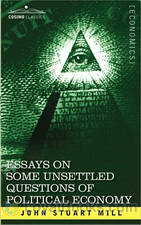 Essays on Some Unsettled Questions of Political Economy
Essays on Some Unsettled Questions of Political Economy
This is Mill’s first work on economics. It foreshadows his Political Economy which was the standard Anglo-American Economics textbook of the late 19th and early 20th centuries. Mill’s economic theory moved from free market capitalism, to government intervention within the precepts of Utilitarianism, and finally to Socialism. | |
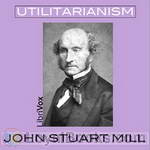 Utilitarianism
Utilitarianism
John Stuart Mill’s book Utilitarianism is one of the most influential and widely-read philosophical defenses of utilitarianism in ethics. The essay first appeared as a series of three articles published in Fraser’s Magazine in 1861; the articles were collected and reprinted as a single book in 1863. It went through four editions during Mill’s lifetime with minor additions and revisions. Although Mill includes discussions of utilitarian ethical principles in other works such as On Liberty and The Subjection of Women, Utilitarianism contains Mill’s only major discussion of the fundamental grounds for utilitarian ethical theory. | |
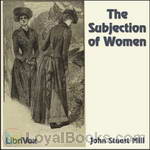 The Subjection of Women
The Subjection of Women
The Subjection of Women is the title of an essay written by John Stuart Mill in 1869, possibly jointly with his wife Harriet Taylor Mill, stating an argument in favor of equality between the sexes. It offers both detailed argumentation and passionate eloquence in opposition to the social and legal inequalities commonly imposed upon women by a patriarchal culture. Just as in “On Liberty,” Mill defends the emancipation of women on utilitarian grounds, convinced that the moral and intellectual advancement of women would result in greater happiness for everybody. | |
 Considerations on Representative Government
Considerations on Representative Government
Mill's volume was published in 1861 as an argument favoring this form of governance. Mill covers what forms of government work best, including when representative government is applicable and when not. He details appropriate functions of representative bodies and warns of problems to avoid. He distinguishes between true and false democracy. Other areas covered include how voting is carried out, the role of a second chamber in Parliament, and how an executive branch might function. | |
 Auguste Comte and Positivism
Auguste Comte and Positivism
Part 1 lays out the framework for Positivism as originated in France by Auguste Comte in his Cours de Philosophie Positive. Mill examines the tenets of Comte's movement and alerts us to defects. Part 2 concerns all Comte's writings except the Cours de Philosophie Positive. During Comte's later years he gave up reading newspapers and periodicals to keep his mind pure for higher study. He also became enamored of a certain woman who changed his view of life. Comte turned his philosophy into a religion, with morality the supreme guide. Mill finds that Comte learned to despise science and the intellect, instead substituting his frantic need for the regulation of change. | |
By: Adam Smith (1723-1790) | |
|---|---|
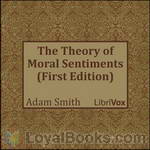 The Theory of Moral Sentiments (First Edition)
The Theory of Moral Sentiments (First Edition)
“How selfish soever man may be supposed, there are evidently some principles in his nature, which interest him in the fortunes of others, and render their happiness necessary to him, though he derives nothing from it, except the pleasure of seeing it.” (from The Theory of Moral Sentiments) Adam Smith considered his first major book, The Theory of Moral Sentiments, his most important work. Indeed, the tome was a wild success upon its publication, selling out immediately. It has not lost popularity since... | |
By: Patrick Henry (1736-1799) | |
|---|---|
 The Anti-Federalist Papers
The Anti-Federalist Papers
During the period of debate over the ratification of the Constitution, numerous independent local speeches and articles were published all across the country. Initially, many of the articles in opposition were written under pseudonyms, such as “Brutus”, “Centinel”, and “Federal Farmer”. Eventually, famous revolutionary figures such as Patrick Henry came out publicly against the Constitution. They argued that the strong national government proposed by the Federalists was a threat to the rights of individuals and that the President would become a king... | |
By: Robert W. Service (1874-1958) | |
|---|---|
 Selections from Ballads of a Cheechako
Selections from Ballads of a Cheechako
These twelve poems are from Ballads of a Cheechako which was Robert W. Service’s third book of Yukon poems, published in 1909. The word Cheechako, from Chinook Jargon, originated in the United States (Alaska) and Canada (Yukon) and was imported into local English during the Yukon gold rush that began in 1896. Cheechako, is a non derogatory word meaning “newcomer” or “tenderfoot.” The derivation looks something like this: chee new cha come ko home. | |
By: Saint Thomas Aquinas (1225-1274) | |
|---|---|
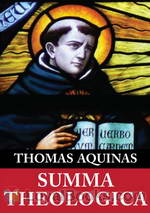 Summa Theologica, Pars Prima
Summa Theologica, Pars Prima
More than nine hundred years after it was first written, this unfinished work of a scholar saint still has the power to move our minds and hearts and set us thinking on the really important questions of life. Summa Theologica or simply the Summa as it is known, was written some time between 1265-74. It is a work that has had a profound and enduring influence on Western thought and literature. Designed to provide answers to Catholic theologians about the teachings of the Church, Thomas Aquinas' book instead goes far beyond its stated purpose... | |
By: Alexis de Tocqueville (1805-1859) | |
|---|---|
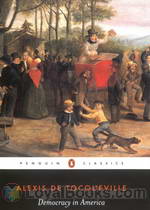 Democracy in America
Democracy in America
Arguably, one of the most influential and insightful pieces of work concerned with American political life, Democracy in America directs itself towards American politics and society, and is considered to be one the best books written on the subject. Published in 2 volumes, in 1835 and 1840, Tocqueville records his findings after studying the thriving nation in his nine month exploratory journey. The young French aristocrat first came to America on an official assignment to study the American penal system, but instead used this as a pretext to study American society... | |
By: Marcus Aurelius (121-180) | |
|---|---|
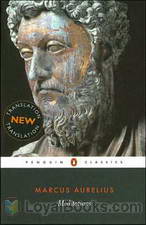 Meditations
Meditations
Marcus Aurelius was a Roman Emperor and philosopher who wrote Meditations; insights which were considered to give the meaning of life. The book was not written with the intent to be published. It offers a noteworthy chain of challenging situations which are a reflection on spirituality and enumerate the struggle to understand oneself and one's role in the universe. Written in the style of a journal, Meditations emphasizes that life in this world is short. Aurelius was a stoic philosopher who had influenced the thoughts of many leaders in his time... | |
By: Bertrand Russell (1872-1970) | |
|---|---|
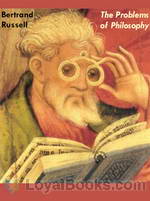 The Problems of Philosophy
The Problems of Philosophy
Published in 1912, The Problems of Philosophy by Bertrand Russell is one of his most popular books. It renders philosophical issues and questions in a way in which they become relevant and accessible to the man or woman on the street, provoking them to devote time and effort into thinking about these aspects of life. Here, the great philosopher and humanist thinker Bertrand Russell examines the importance of empirical (that which can be verified by observation or experience rather than deduced from logic or reasoning) thinkers like David Hume and George Berkeley the Anglo-Irish philosopher and scientist... | |
 Proposed Roads to Freedom
Proposed Roads to Freedom
Bertrand Russell, 3rd Earl Russell (1872 – 1970) was a British philosopher, logician, mathematician, political activist and Nobel laureate. He led the British “revolt against idealism” in the early 1900s and is considered one of the founders of analytic philosophy along with his predecessor Gottlob Frege and his protégé Ludwig Wittgenstein. In this book, written in 1918, he offers his assessment of three competing streams in the thought of the political left: Marxian socialism, anarchism and syndicalism. | |
 Mysticism and Logic and Other Essays
Mysticism and Logic and Other Essays
| |
By: Arthur Schopenhauer (1788-1860) | |
|---|---|
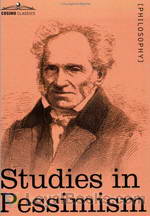 Studies in Pessimism
Studies in Pessimism
Arthur Schopenhauer, an early 19th century philosopher, made significant contributions to metaphysics, ethics, and aesthetics. His work also informed theories of evolution and psychology, largely through his theory of the will to power – a concept which Nietzsche famously adopted and developed. Despite this, he is today, as he was during his life, overshadowed by his contemporary, Hegel. Schopenhauer’s social/psychological views, put forth in this work and in others, are directly derived from his metaphysics, which was strongly influenced by Eastern thought... | |
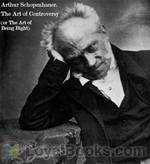 The Art of Controversy (or The Art of Being Right)
The Art of Controversy (or The Art of Being Right)
The Art of Controversy (or The Art of Being Right) (Die Kunst, Recht zu Behalten) is a short treatise written in 1831 by the German philosopher Arthur Schopenhauer in which he presents thirty-eight methods of gaining an unfair advantage in a debate and thereby being right even if you are wrong. Schopenhauer champions the virtue of dialectical argument, in his view wrongly neglected by philosophers in favour of logic, and goes on to discuss the distinction between our conscious intellectual powers and our will. The text is a favourite of debaters including the philosophers AC Grayling and Mary Warnock, and the Mayor of London Boris Johnson. | |
 The Essays of Arthur Schopenhauer: the Wisdom of Life
The Essays of Arthur Schopenhauer: the Wisdom of Life
| |
 The Essays of Arthur Schopenhauer; On Human Nature
The Essays of Arthur Schopenhauer; On Human Nature
| |
 The Essays of Arthur Schopenhauer; Religion, a Dialogue, Etc.
The Essays of Arthur Schopenhauer; Religion, a Dialogue, Etc.
| |
 The Essays of Arthur Schopenhauer; Counsels and Maxims
The Essays of Arthur Schopenhauer; Counsels and Maxims
| |
 The Essays of Arthur Schopenhauer; the Art of Controversy
The Essays of Arthur Schopenhauer; the Art of Controversy
| |
 The Essays of Arthur Schopenhauer; The Art of Literature
The Essays of Arthur Schopenhauer; The Art of Literature
| |
By: David Hume (1711-1776) | |
|---|---|
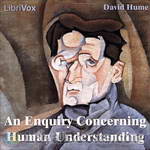 An Enquiry Concerning Human Understanding
An Enquiry Concerning Human Understanding
The Enquiry Concerning Human Understanding is a shortened and simplified version of Hume’s masterpiece A Treatise of Human Nature. It sought to reach a wider audience, and to dispel some of the virulent criticism addressed toward the former book. In it, Hume explains his theory of epistemology, and argues against other current theories, including those of John Locke, George Berkeley, and Nicolas Malebranche. | |
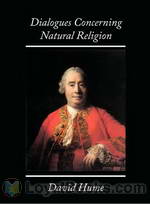 Dialogues Concerning Natural Religion
Dialogues Concerning Natural Religion
In Dialogues Concerning Natural Religion, philosopher David Hume examines whether belief in God can be rational. The work takes the form of a debate between three characters: Cleanthes, who argues that the existence and nature of God can be empirically verified; Demea, who argues that God is completely beyond human knowledge; and Philo, a philosophical skeptic widely thought to represent Hume’s own beliefs. Much of the debate centers around Cleanthes’ presentation of the analogical argument from design... | |
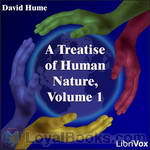 A Treatise Of Human Nature
A Treatise Of Human Nature
This book, published in two volumes called “books” by the author, is a treatment of everything from the origin of our ideas to how they are to be divided. It includes important statements of Scepticism and Hume’s experimental method. Part 1 deals with the nature of ideas. Part 2 deals with the ideas of space and time. Part 3 deals with knowledge and probability. Part 4 deals with skeptical and other systems of philosophy, including a discussion of the soul and personal identity.This is a recording of Volume I (or Book 1). Volume II (which contains Books 2 and 3) is in production at the moment. | |
 Enquiry Concerning the Principles of Morals
Enquiry Concerning the Principles of Morals
| |
By: Bernard of Clairvaux (1090-1153) | |
|---|---|
 On Loving God
On Loving God
On Loving God is one of the best-known and most influential works of Medieval Christian mysticism. Written at the request of one of the cardinals of Rome, it describes the four “levels” of love for God, and puts Christian devotion in the context of God’s love for mankind. | |
By: Laozi | |
|---|---|
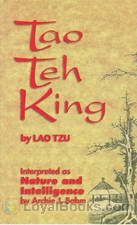 The Tao Teh King, or the Tao and its Characteristics
The Tao Teh King, or the Tao and its Characteristics
Written in classical Chinese some time during the sixth century BC, The Tao Teh King or The Tao and its Characteristics is a classical Chinese text that is one of the important keystones in understanding the thought systems of Asia. Though no clear records exist, it is traditionally thought to have been the work of the sage Lao Tzu, the founder of classical Taoism. He is reputed to have been a contemporary of Confucius, though this is also shrouded in mystery. However, many succeeding emperors and dynasties have claimed that he lived in their eras... | |
By: Francis Bacon (1561-1636) | |
|---|---|
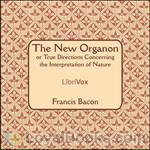 The New Organon Or True Directions Concerning The Interpretation of Nature
The New Organon Or True Directions Concerning The Interpretation of Nature
The Novum Organum is a philosophical work by Francis Bacon published in 1620. The title translates as “new instrument”. This is a reference to Aristotle’s work Organon, which was his treatise on logic and syllogism. In Novum Organum, Bacon details a new system of logic he believes to be superior to the old ways of syllogism. For Bacon, finding the essence of a thing was a simple process of reduction, and the use of inductive reasoning . . . This work was critical in the historical development of the scientific method. | |
 The Advancement of Learning
The Advancement of Learning
| |
 Valerius Terminus; of the interpretation of nature
Valerius Terminus; of the interpretation of nature
| |